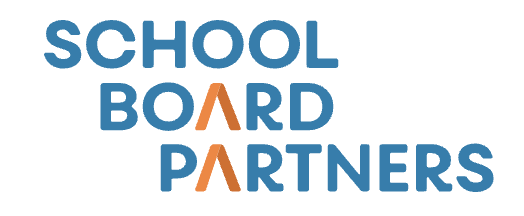What Happens When Our School Boards Aren't Governing?
I have the unique opportunity to coach and mentor school board members across the country through School Board Partners, a national network of 91 school board members across 63 cities representing 5.9 million students. After working with over 30 school board members and counting, I have observed several common challenges plaguing many of our nation’s public school systems.
One of the most prevalent and troubling dynamics I’ve noticed is the imbalance of power between school boards and their superintendents. School board members from all corners of the country persistently say things to me like “our board does whatever the Superintendent wants,” or “since my term began, our board has not introduced a single policy initiative, or “our board does not properly evaluate the Superintendent.”
What happens when our school boards aren’t governing?
Our democratic system of government was designed with three branches of government to ensure no individual or group gained too much power. When school boards abdicate their policy-making role and supervisory responsibilities over the superintendent, it is analogous to Congress not passing laws and deferring to the President as if he were a monarch. I’m certain the public outcry in response to our federal government operating that way would be deafening. The centralization of power with one individual would undoubtedly lead to serious degradation of the rights of individuals and groups who disagreed with the President, and our entire democracy would be broken.
So why are we silent when our local school boards don’t do their jobs?
Some education reformers are convinced that the only logical response to examples of dysfunctional school boards, which I must admit there are many, is to abolish them all together or keep them at bay. But this is a short-sighted vision without regard for the implications of letting the pendulum swing the other way, in favor of over-empowered superintendents.
If we are counting on benevolent dictators to rise to leadership in every one of our 13,800 school districts, we will inevitably be sorely disappointed. Instead of blaming and demonizing “the system”, we ought to embrace our local democracies and hold BOTH our elected officials and the leaders they choose accountable to rigorous standards of educational outcomes for all children – especially children who have fallen behind due to systemic racism and/or the district’s inability to meet their individual needs.
What happens when our school boards aren’t governing?
We must consider the grave consequences if a superintendent were to act in a manner that conflicts with the best interests of children and the school board looks the other way. Our democratic system of checks and balances would be rendered ineffective.
As I write this, a Russian invasion of Ukraine is underway, likely to result in massive human casualties and worldwide economic crisis. The Russian President received unanimous approval from the country’s legislative branch. We wouldn’t stand for such negligence from the U.S. Congress, nor should we stand for school boards that don’t govern properly and independently.
School Board Partners offers a better path forward. Instead of shaming or abandoning our locally elected school board members, we are identifying the most promising leaders and supporting them to use their power to help strengthen their entire boards, ultimately benefiting students and families. We provide them with the knowledge, skills, and wind beneath their wings to succeed. When school boards practice good governance, our children benefit from more equitable and higher-quality educational experiences.
